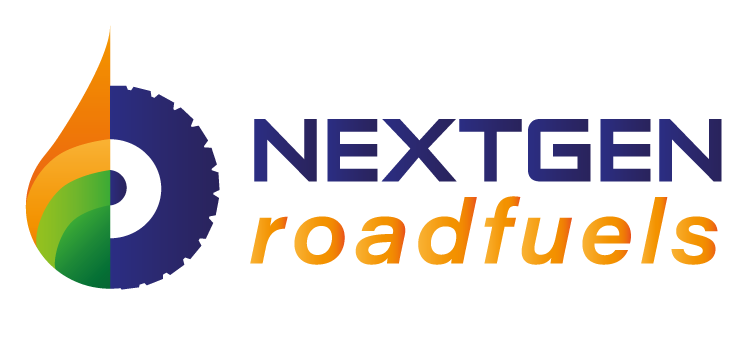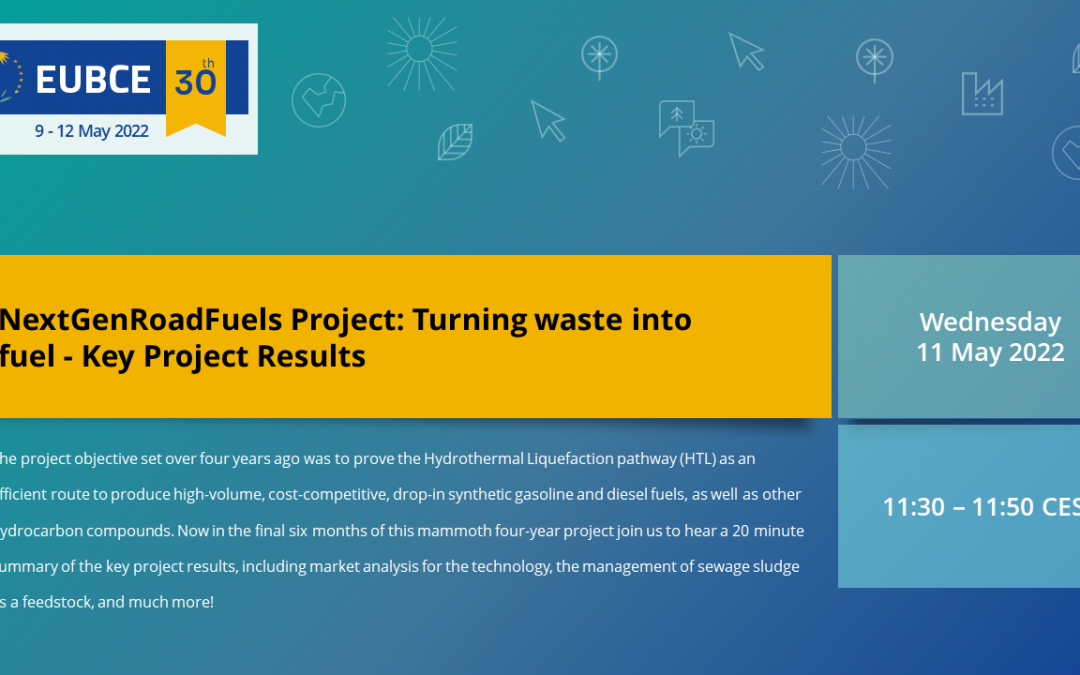
by ETA-Florence Energies | May 19, 2022 | NGRF news
The project objective set over four years ago was to prove the Hydrothermal Liquefaction pathway (HTL) as an efficient route to produce high-volume, cost-competitive, drop-in synthetic gasoline and diesel fuels, as well as other hydrocarbon compounds. Now in the final...
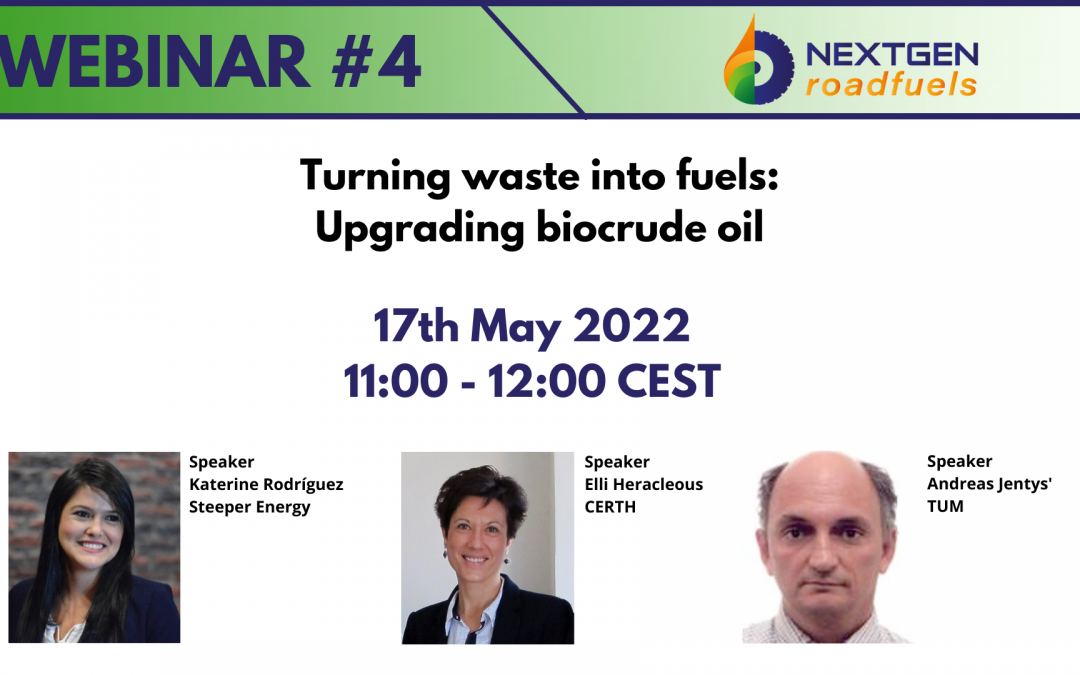
by ETA-Florence Energies | May 19, 2022 | NGRF news
The conversion of sewage and urban waste through hydrothermal liquefaction (HTL) untaps a vast renewable resource for the production of renewable transport fuels. The HTL biocrude requires however further upgrading to remove or recover minerals, oxygen, nitrogen, and...
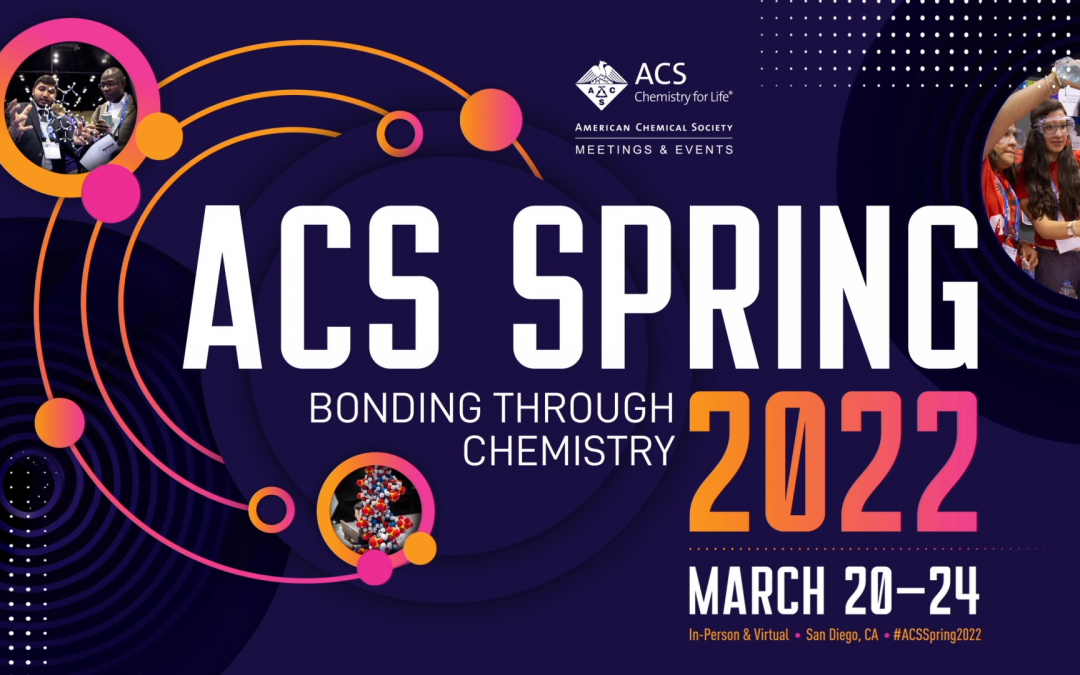
by ETA-Florence Energies | Apr 12, 2022 | NGRF news
Between March 20-24th, Muhammad Salman Haider presented the NextGenRoadFuel project with an oral presentation at ACS spring 2022. There, he discussed the challenges and prospects during the continuous hydroprocessing of hydrothermal liquefaction biocrudes.” The title...
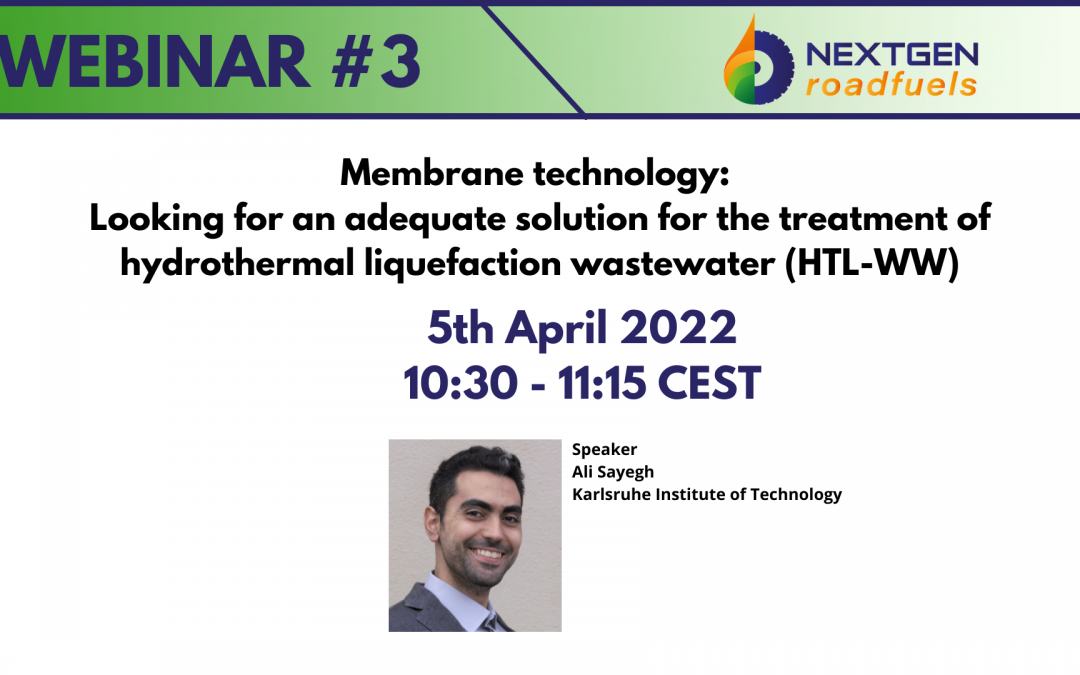
by ETA-Florence Energies | Apr 5, 2022 | NGRF news
In the past, often was the case that researches focused on the biocrude quality produced through hydrothermal liquefaction and its upgrading, but neglected the importance of treating the liquid by-product, hydrothermal liquefaction wastewater (HTL-WW). Yet, this issue...
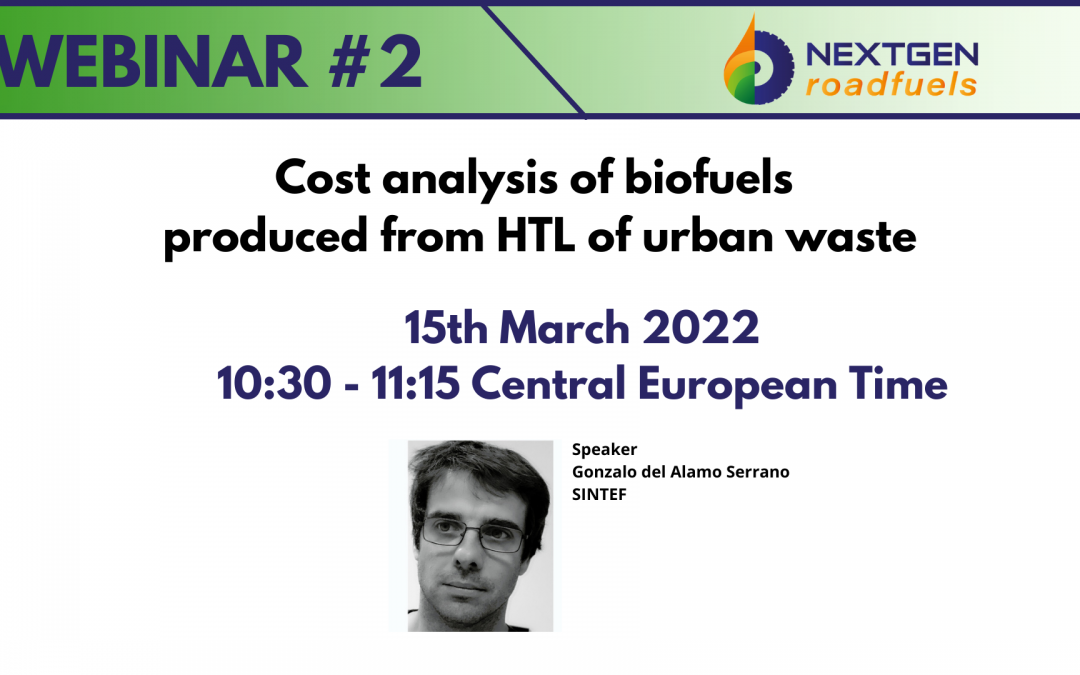
by ETA-Florence Energies | Mar 15, 2022 | NGRF news
How much would it really cost to fuel road vehicles with gasoline and diesel produced from aggregated urban waste? This is one main question of the Horizon2020 Next Generation Road Fuels project. Watch this webinar to hear about the how the overall conversion process...
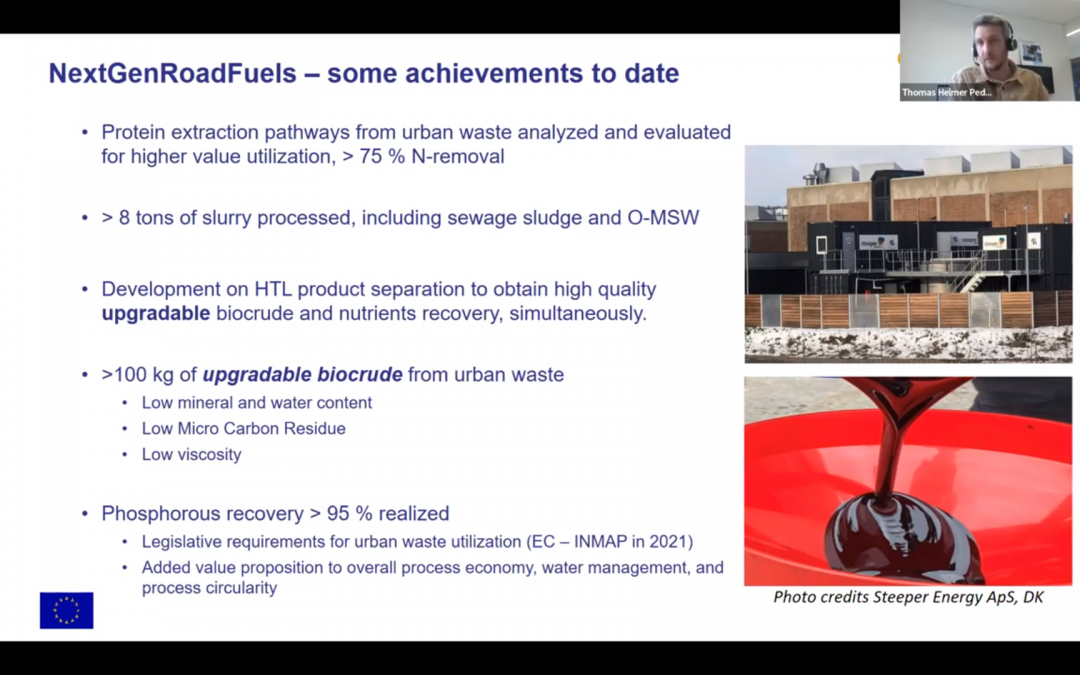
by ETA-Florence Energies | Feb 22, 2022 | NGRF news
Could our sewage and urban waste fuel the vehicles of the next generation? This is the question at the forefront of the Horizon2020 Next Generation Road Fuels project, and in the quest to answer this question, through experiments using sewage sludge as a feedstock for...







